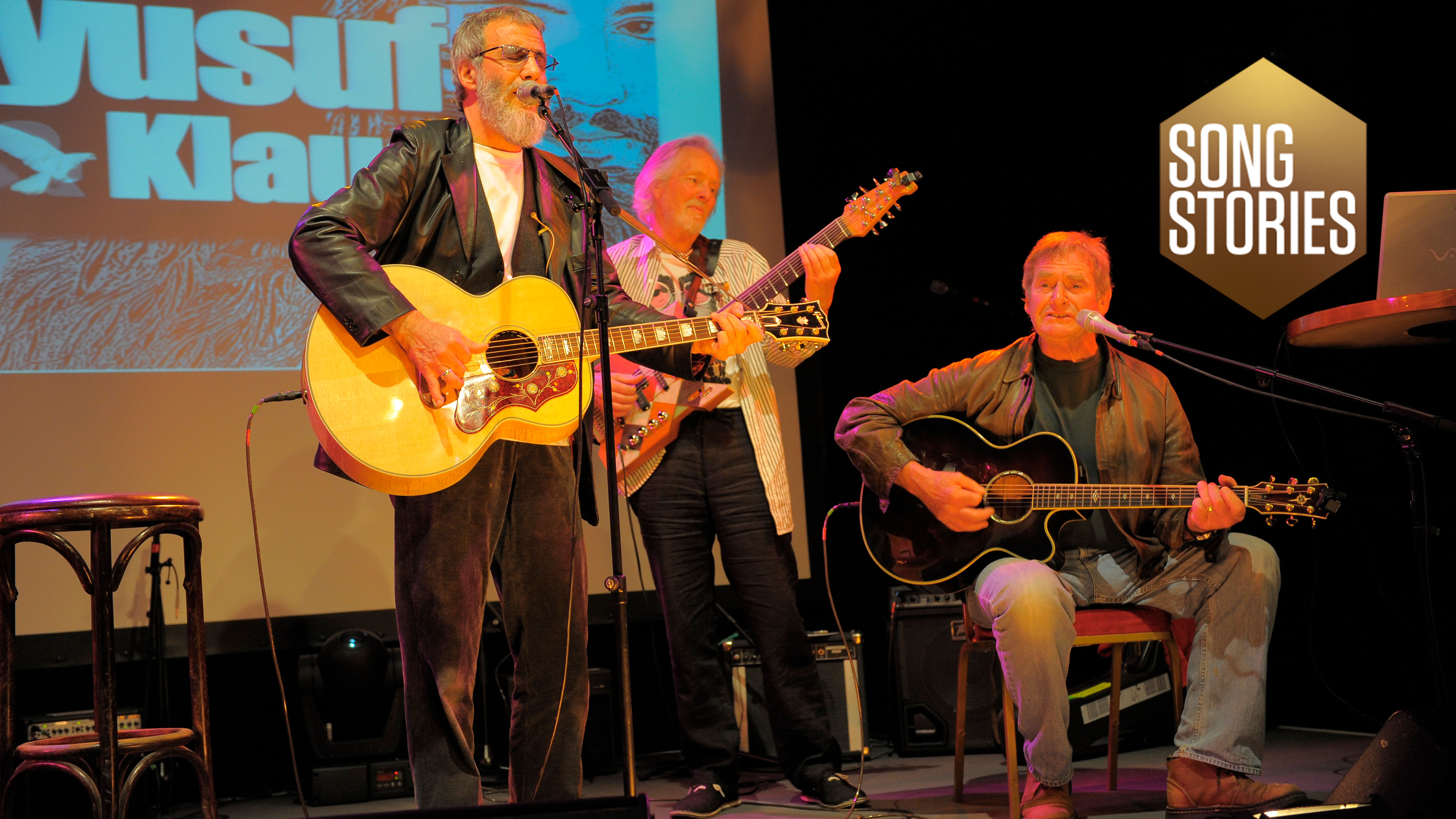The story of Wild World: "I don’t think that either Cat Stevens or Alun Davies would have been the same without the other. They were a complete fit”
Tea For The Tillerman producer and former Yardbirds bassist Paul Samwell-Smith on the recording of an acoustic classic

Want all the hottest music and gear news, reviews, deals, features and more, direct to your inbox? Sign up here.
You are now subscribed
Your newsletter sign-up was successful
Cat Stevens – born Steven Demetre Georgiou and known as Yusuf Islam since becoming a Muslim in the late '70s – is arguably one of the greatest singer-songwriters the UK has produced. By the time he cut Wild World and fourth long player Tea For The Tillerman in 1970, the 21-year-old Stevens had already scored three top 10 UK hits.
Although Wild World was never released as a single in Britain, the song helped establish him as a bona fide star in the US, garnering massive mainstream radio play and reaching No 11 on the Billboard Hot 100. Since Cat first penned the track, it’s been covered and recorded by artists as varied as Jimmy Cliff, Mr Big, Sacha Distel and James Blunt.
Wild World’s often been interpreted as being about one of Cat’s ex-girlfriends, but it’s really more personal. “I was trying to relate to my life. I was at the point where it was beginning to happen and I was myself going into the world,” Yusuf told Chris Isaak in 2009. “It wasn’t me writing about somebody specific… it was more about me. It’s talking about losing touch with home and reality – home especially.”
Tea For The Tillerman – just like Stevens’ third album, Mona Bone Jakon, also released in 1970 – was produced by ex-Yardbirds bassist Paul Samwell-Smith, who would go on to man the helm for a further four of Cat’s albums.
Tillerman was recorded off and on across five months during 1970 at Morgan Studios in Willesden, London. Mike Bobak and Robin Black took care of engineering, while mixing duties were completed at Island’s Basing Street Studios. Stevens was also working on a version of Wild World with Island reggae icon Jimmy Cliff, whose killer take would score a top 10 UK chart placing a few months before Tillerman.
"We had recorded the backing track with voice and guitars, but I put it to one side,” producer Paul Samwell-Smith told Total Guitar in 2011. “The implication was that he was going to produce it with Jimmy Cliff and therefore that was where the main focus went, and the one he did with me was a bit of an also-ran. Then towards the end of Tea For The Tillerman, when we were finishing up, we realised that we had this good song and we went back to it, looked at it and overdubbed on it.”
The initial backing track – consisting of Stevens’ Ovation electro-acoustic and vocals, plus the Guild acoustic of his right-hand man Alun Davies – was cut live in Morgan Studio One. The Ovation was recorded in stereo.
Want all the hottest music and gear news, reviews, deals, features and more, direct to your inbox? Sign up here.
“I took the electric side out and DI’d it up into the control room and put that on the left-hand side,” recalled Paul. “Then I put one microphone, probably a Neumann KM84, near the sound hole, but to one side so it didn’t pick up all the boom. It’s just a wonderful sound that… It just has crunch and it’s got a great presence to it. My impression of Wild World has always been, ‘What an extraordinary up-in-yer-face guitar and voice it is.’ It jumps out of the speakers! It’s a very simple, uncomplicated track but everything… comes through very audibly.”
Alun Davies hooked up as Stevens’ second guitarist on Mona Bone and, with Yusuf’s musical hiatus over, is again supporting his friend. He’s also something of an unsung hero.
“He just had an extraordinary sense of rhythm,” reflected Paul. “It’s a great art, this ability to strum and accompany… The way Alun strummed was extraordinary. He used to be able to make the guitar pump… He used the flat bit of his hand that goes from the little finger up to the wrist up against the bridge to dampen the strings at the same time as he was hitting them with the plectrum. It was lovely stuff. I don’t think that either Cat Stevens or Alun would have been the same without the other. They were a complete fit.”
Paul Samwell-Smith’s notes for Wild World show only 10 of the available 16 tracks were used during the initial recording and later overdubbing sessions. The overdubs included the piano played by Stevens, the occasional double-tracked lead vocal, John Ryan’s acoustic bassline, bongos and two tracks of Harvey Burns’ drums. The drum arrangement was a further example of Stevens’ genius.
“If you listen to it, it’s a very weird drum part, going from one foot to the other foot,” explained Paul. “And I remember Cat Stevens down on the studio floor in front of Harvey saying, ‘No, no, it’s like this!’ and very much telling him what to play. It’s a very odd part!”
While the albums that Stevens recorded with Samwell-Smith have been cherished for years, the ultimate pat on the back came when Island Records head honcho Chris Blackwell declared that Tea For The Tillerman was his favourite Island release.
“I heard that and I have to say my heart swelled with pride and a tear came to my eye,” remembered Paul. “What a compliment!”